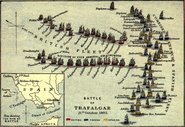Friday, November 30, 2007
Pictures of Food
Thursday, November 29, 2007
The Riotus Thoughts of the Week
I HEARD three important questions a lady asked to a talk radio host while driving home tonight.
1) How is the next president going to mend the political fence between conservatives and liberals?
2) What do we export? What do we produce that the world needs to buy. Why have we exported all of our manufacturing jobs to offshore factories? (so corporations can give your job to a indian or chinaman and save a buck)
3) What are we doing in Iraq?
I have no great answers for anyone for these questions because none of these have a real concrete precedent. Civil Wars or Fiscal success usually quiets the dissenting parties, neither of which is probably on the horizon. We export ideas now, not good enough for a still very tangible world economy. Ideas may be supporting us for now, but there will come a day soon that we wished we did not take a quick buck to offshore our once immense national production. For the last question, I really have no understanding of why we even went there in the first place. The intelligence estimation was incorrect, Saddam's regime was hardly a threat and now we have the very real potential of a steep political vacuum where any number of whack-jobs could take power...by popular vote. Our invasion has bred political, economic and social instability in Iraq and there is no quick fix in sight. Losing diplomatic leverance has been our biggest loss, and now we face even greater and greater potential threats and we have no recourse to take because our hands are tied down in Iraq and to lesser extent Afghanistan. Everyone says, we must still support troops and even worse, support their fallen comrades by staying the course, but as far as I can tell, staying the course will only see more troops dead. Is that what we really want?
Not that I wasn't aware of this before, but out of the candidates for the 2008 presidential election that still actually have a chance to win, all (well most) of them are from 'blue' states, those that have voted democrat in recent elections. Illinois, New York and Massachusetts feature the four front-running candidates. Conservatives sense a shift in the nation's sentiment by running two candidates that were successful in the hearth of the yankee north. Regardless who ends up being the nominees, I hope this election does not focus on personal war records or gay marriage, two issues that deserve less attention than Spears' exposed pot belly or Lohan's latest DUI. Can we focus on things that really matter? Like Manufacturing getting a new start here or revamping our world image? Please?
Wednesday, November 28, 2007
The Rats of Rat Island
Scientists and naturalists are looking into plans to eliminate the explosively breeding rats, which have overtaken every corner of burrowing space on the island, by dropping pounds of anticoagulant rodenticides onto the island. The hope is that the immediate bounty will be feasted upon by the population. With the rats dead from poison, birds would once again be able to nest on the island.
This is not the first time this feat was to be attempted and it wouldn’t be the largest island eradicated of rats. 27,922-acre Campbell Island, NZ and Canada’s 8,080-acre Langara Island had their black rat populations eliminated. Rat Island is 6871 acres.
Rats are one of most successful species on the earth and their success mirrors their domestic partner, the human being. Like humans, rats are able to adapt to almost every type of environment and their omnivorous behavior allows them to take advantage of a variety of different feeding opportunities. They are locally responsible for massive avian and reptilian extinctions, hunting ground nests relentlessly.
While rats will never become endangered and their habitat(s) will never be threatened, poaching rats will never be a sensitive issue to most. Early rat exterminators in New York were looked upon with admiration from its citizens. The introduction of the rats to this particular island was done by rats spilling off of ships anchored nearby. Playing God is easy with such a vile critter, and it comes with the benefit of creating breeding grounds for rarer and more pleasant creatures from the animal kingdom.
In our attempt to regulate animal traffic however, I think it’s important to regard our own culpability with more disdain. After all, wasn’t it our presence, behavior and habitats that have made the rat so successful? If it wasn’t for increased human traffic starting in the Middle Ages, Rattus rattus and Rattus norvegicus would never be as prevalent as they are today. All rat problems are fornlorn unless preventative measures are taken. It would be foolhardy to think that this elimination attempt would be a permanent fix for the rats on Rat Island, even if the plan works to a T.
Saturday, November 24, 2007
DOLCE ET DECORUM EST
Knock-kneed, coughing like hags, we cursed through sludge,
Till on the haunting flares we turned our backs
And towards our distant rest began to trudge.
Men marched asleep. Many had lost their boots
But limped on, blood-shod. All went lame; all blind;
Drunk with fatigue; deaf even to the hoots
Of tired, outstripped Five-Nines that dropped behind.
GAS! Gas! Quick, boys!-- An ecstasy of fumbling,
Fitting the clumsy helmets just in time;
But someone still was yelling out and stumbling
And floundering like a man in fire or lime...
Dim, through the misty panes and thick green light
As under a green sea, I saw him drowning.
In all my dreams, before my helpless sight,
He plunges at me, guttering, choking, drowning.
If in some smothering dreams you too could pace
Behind the wagon that we flung him in,
And watch the white eyes writhing in his face,
His hanging face, like a devil's sick of sin;
If you could hear, at every jolt, the blood
Come gargling from the froth-corrupted lungs,
Obscene as cancer, bitter as the cud
Of vile, incurable sores on innocent tongues, -
My friend, you would not tell with such high zest
To children ardent for some desperate glory,
The old Lie: Dulce et decorum est
Pro patria mori.
Wilfred Owen (8 Oct. 1917),
killed in action on the morning of 4 Nov. 1918, one week before the Armistice.
Friday, November 23, 2007
The Real Meaning of Thanksgiving
Thursday, November 22, 2007
Wednesday, November 21, 2007
Blog Riotus Thanksgiving
After eating your fill at the Thanksgiving table, there are the driving while drowsy jokes that are required to follow any discussion on how much turkey was consumed. While glancing at the advertisements for Black Friday sales, someone always must be “amazed” at those nut-jobs that line up for the mad dash. There is even a scheduled Thanksgiving weekend football match against the rival squad that never seems to materialize into anything of the magnitude that was supposed on the prior Wednesday night. Thanksgiving may be the best of all American holidays, but even when the name is stuck right in the middle of the holiday’s title, there is still some forgetfulness for what the holiday stands for: Giving Thanks.
In a society where food is eaten without even the slightest regard to how it was raised or grown, we are either forgetful or ignorant of the struggles of early Americans to forge their way in a new world filled with novel beasts and grasses, without the familiarity of domesticated fowl or livestock and English crops. Pilgrims to America had difficulty adapting to the new foods and it took Tisquanto (who was kidnapped, sold into slavery, lived in England, spoke fluent English) and Massasoit, the Great Sachem of the Wampanoag tribe to help Plimouth Plantation to survive those early cold winters. After all, a people who looked upon the bounty of New England seafood as vile and disgusting would need help surviving their meager harvests. A March 1621 peace agreement between John Carver and Massasoit, sealed with smoke from a peace pipe, allied the Wampanoag and Pilgrims (and later the Massachusetts Bay Colony) for more than forty years.
Thanksgiving symbolized the culmination of the harvest, a concept that is completely foreign to the American removed 300+ years. Looking through a local supermarket, there are apples from New England mixed in with Spanish clementines, Florida oranges, lettuce from South America, Peppers from California. Most food that we eat in winter is foreign. There is no more annual harvest, a time that would accentuate the differences among each regional culture. There are of course the vestiges of this and lucky for us, because early American tradition roots in New England, there is a strong market for pumpkins, squash, cranberry sauce and turkey, all native to New England. At least, New Englanders observe Thanksgiving as they would their native harvest. The harvest was a time for abundance, with a strong basis in God’s blessing and the Thanksgiving feast was a celebration of God’s bounty. In other cultures, Harvest was very much spiritual event as it was a physical event.
While we have lost much of the significance of Thanksgiving in modern society, it is more than ever appropriate to think about all the things we should be thankful and grateful for, especially in an age where there is so much bounty and comparatively little suffering amongst us. Happy Thanksgiving.
Andersonville National Cemetery and Prisoner of War Museum
Tuesday, November 20, 2007
Blog Riotus Boston Sports Notes
Was it a good deal or bad deal at 3 years $37.5 million? I don’t think we will ever know Lowell’s true value in the baseball market. Of course his numbers were all-star this past season. Anyone decent who bats behind Ortiz and Ramirez should see record number of fastballs. Put Fenway in the mix for a righty and you have the makings of a .324 BA, team leading 120 RBI season. I’m glad we got him back at a fair price. I enjoyed watching him play this season at third base. Anybody who makes third base look easy deserves a good salary. I just hope for his sake that he continues good production in the 5th spot of the batting order.
Theo is known for not offering salaries at what the player wants. Pedro Martinez was mentioned in this morning’s radio sports show (left unnamed for personal integrity) as being a guy that was given less than a desired salary offer. (Damon included) A reason that he didn’t accept a pay-cut was that he could not share a clubhouse with Curt Schilling (saying he needed to be the no.1). Sure Pedro may not have wanted to share a clubhouse; Curt is one of the most obnoxious self-righteous men in baseball!
The Patriots have been labeled most recently the NFL’s villains. Bill Belichick is unlike-able as any coach and the team is scoring points without relent on its weaker opponents. I have already touched on the “running-it-up” noise (un)surprisingly coming from national media rather than local sources but the hatred from Bill comes from the fact that he is a introverted geek who has managed to eliminate the harm that the media can cause between football games. His style is not what the national media wants and therefore they abhor his behavior… The Patriots of 2007 are not villains as they were never the saints of 2004-5. This is all how they are represented in the media…and media is driven by what makes a compelling story.
A quick mention of the New England Revolution. The Revs lost their third consecutive MLS Cup this past Saturday, twice at the hands of the Houston Dynamo. Toward the end of the game, Revs trailing 2-1, had a few good chances to nod the score at 2, but missed opportunities and bad luck plagued them. The header at point blank range that ricocheted off the goalies body was when I gave up hope. Too bad.
Monday, November 19, 2007
Jonathon Strange & Mr Norrell by Susanna Clarke

This was one of those books you dread to start and hate to finish. I can't say I have finished, but this book engulfs you into the story as only classic stories do. Immersed in historical fiction and fantasy, Clarke's work is an original magical epic deserving of all the praise it has received.1 The website has a list of links, reviews and interviews.
Of course a mention must be made to J.K. Rowling's Harry Potter, but here is a story that must be judged by its own merit and not in a sort of a following-in-the-footsteps-kind-of-way. After all, Clarke began writing this book in 1992, five years before Rowling published Harry Potter and Philosopher's Stone.
I also make note of this book for another reason. The book is slated to be adapted to the silver screen by New Line Cinema for release sometime in 2008. Just another movie scribbled onto my upcoming must sees.
Sunday, November 18, 2007
Thursday, November 15, 2007
Blog Riotus Working Out
Wednesday, November 14, 2007
Blog Riotus joins Technorati
Technorati Profile
Welcome.
Tuesday, November 13, 2007
The Port Jefferson - Bridgeport Ferry
I tried using the West Cross/Merritt Parkways (Rt 15) that winds through wooded terrain with quaint stone bridges that span the roadway at intervals and parralels 95, but at times the volume clogs this route so completely traffic actually stops for long enough to open up conversations with fellow commuters. Not that I would actually do that, because although I was temporarily lulled by the pleasant scenery, the anger would be creeping back to life and no doubt any inane comments from a Fairfield County Connecticuter would send me into incessant road rage.

What must have saved my recommute was a simple boat ride. The ferry leaves from a midpoint in Long Island and shoves you off unceremoniously in Bridgeport, CT. It's not the staff, food, or tour of either port city that is worth the steep fare of passage, it's the clear peace of mind one gets without the stop-and-go dash that is the commute leaving from New York City into Connecticut on a friday evening. It's the sunset over New York City and sea air over the Long Island Sound that makes it worth it. I recommend it for anyone who needs to get off of "the island" on a friday night and dreads the Throgs or Whitestone commute.
War of Amputees
The toughness these wounded veterans display is beyond most people. Here they are missing arms in legs and yet they still keep a positive outlook. A female soldier from South Carolina who joined the Army to escape a future with two choices: to get married or to get out, said she never allows people around her to cry about her injury. "I will do that on my own time." Another soldier who lost an arm, and both legs (former boxer and gymnast) said that if he had all four amputated it would not be worth living, said that one arm allowed him the independence to take care of himself. Headwounds are the worst. With two headwounds, a soldier was left half incapacitated and left to the care of his mother for the rest of his life. When the blinded soldier struggling to place his false eye into his empty socket took the screen, I could not take it any longer.
This war has the most amputees since the Civil War and the mental devastation has been understated. The result will be inevitable; PTSD, homeless, and vets uncared for, the cost that survivors pay for after all wars. In five years, we forget their sacrifices, take away benefits and coverage and in doing so, remove their dignity. The elevated number of suicides by returning veterans is only the beginning. It's one thing to "Support the Troops" tooting horns and waving flags; it's another thing to support the troops in a meaningful way.
Sunday, November 11, 2007
There's a war going on now, does anyone care?
So when I happened to come across a blog (http://wwar1.blogspot.com/) on the internet about a soldier's letters sent to his wife and brother from the front in France, I was immediately interested. Pvt. Harry Lamin's letters are timeless and universal for all soldiers writing to loved ones back home. These letters are posted on the site by his grandson, exactly 90 years to the day after they were penned by Pvt. Lamin himself in the trenches. With exactly one year left to the day for the war, we aren't sure if Harry Lamin survives. A radio interview of Lamin's grandson discusses more on the postings.
 In the trenches: Royal Irish Rifles in a communications trench on the first day on the Somme, 1 July 1916
In the trenches: Royal Irish Rifles in a communications trench on the first day on the Somme, 1 July 1916
While the war today is not being fought in trenches, there is probably a great similarity in the sentiments of those fighting and their families at home. I won't pretend to really understand the daily fear and traumatizing moments, but quote my father, "If people knew what wounds smelled like and had to pick pieces of their buddies flesh from their face, maybe they would not be so ambivalent about this war." At least the trench provided a safe haven for the troops at the front. In Iraq, everyday is like the green fields of the Somme. At any moment an explosion could tear their life away. There was an article in the Boston Globe today about Marines returning from the "front" in Iraq and the survey they answered from a Globe writer. I thought the most telling response was that the soldiers felt that more than a third of the Boston Metro community was either unappreciative or unaware of the returning vets service for our country in Iraq. This is the first war in which the home front has not been responsible for bearing any brunt of the suffering of the front lines. The war is shielded from our population, available only in relics of news coverage in newspapers or posted as headlines in the web. How many more stories on Britney Spears were there this year than on the War in Iraq? It is Veteran's Day tomorrow, and I hope some people remember to honor those who serve and have served our country in a way unimaginable to most people in our country today. Unfortunately, war has been a part of humanity since our beginnings and although I do not support war as a bright option of diplomacy, and certainly don't support our leader's decisions to invade Iraq, the soldiers should be recognized for their brave conduct and sacrifices.
There is another good article about Veteran's Day on more than 1200 squares named in honor of local veterans of foreign wars that we pass on by unknowingly on our daily lives. And just to know, Veteran's Day was November 11, formerly known as Armistice Day, the date which the guns of World War One went silent.
Friday, November 9, 2007
Will we get ours?
For a continent with so many natural resources, most are inaccessible without the investment of heavy machinery and excavation techniques. Oil and minerals have plentiful reserves on the continent, but the native people had no way of unearthing them. After centuries of development, the Europeans descended upon Africa in the 19th century with a fury, taking over land, enslaving people, destroying culture and imposing European “ways” on Africans. Of course, the average African was able to taste these refinements, without a doubt. Even though the European countries found the African landscape basically fruitless with no easy profits to show for it, their private companies got into the mix, settled in, and made a killing; literally. (In the end, many immigrants have flooded into the European nation escaping hunger, famine and war and this exodus has placed a burden on those nations. I guess you always get what you deserve.)
For something as obvious as the diamond trade causing such misery in these countries, it is a shame that “civilized” society still has a relentless demand for them. When I hear the local jeweler commercials on the radio and see them on the television, I wonder how our society in the future will survive when things change for the worst and we need to rely on each other and others to get by. For a regard so small for the rest of humanity, is there really a doubt whether other people will come to our aid? Maybe in the end, when we stood by and watched the purging of Darfur, and when we bled Africa dry for want of oil and diamonds etc., we will get what we deserve.












